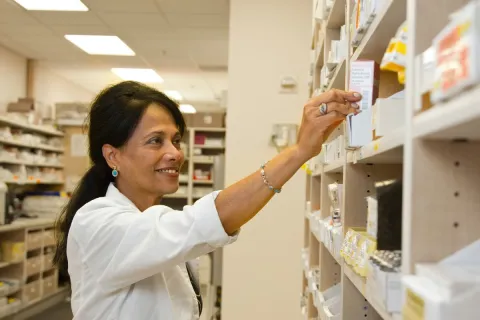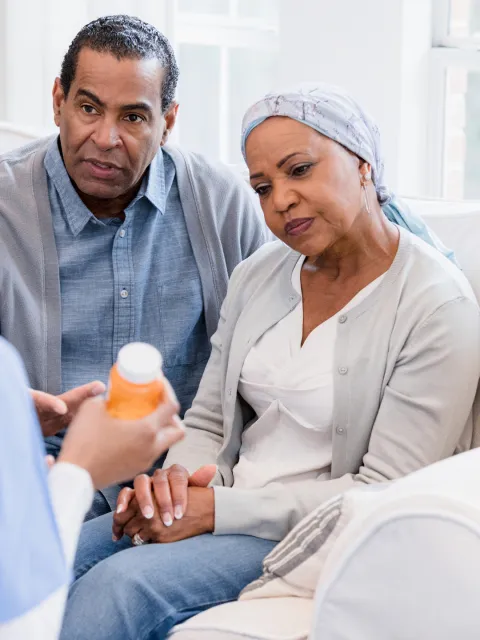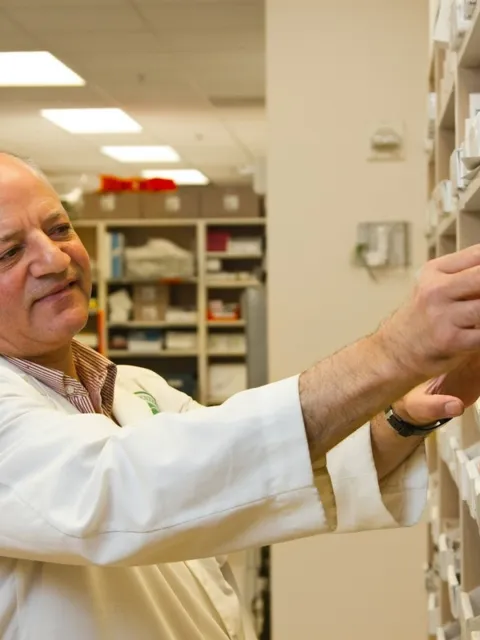Invest in nursing education to strengthen the fight against antimicrobial resistance

Marking International Nurses Day on 12 May, Howard Catton explains how investing early in nurses’ education on antibiotics can help address the growing problem of antimicrobial resistance.
It is well established that antimicrobial resistance (AMR) poses a major threat to global human health. Recently, The Lancet published a systematic analysis, entitled “Global burden of bacterial antimicrobial resistance in 2019”, which found that across 204 countries, there were an estimated 4.95 million deaths associated with bacterial AMR. Whilst it found that it poses the largest threat to human health in sub-Saharan Africa and South Asia, it also acknowledged the risk faced in all regions of the world.
This threat is particularly pertinent to cancer care. As pathogens become resistant to antimicrobial drugs, cancer patients have a higher risk of adverse treatment outcomes. It is estimated that 1 in 5 patients undergoing cancer treatment will require antibiotics at some stage and a patient with cancer has three times greater risk of dying from a fatal infection than a patient without cancer.
The scale of the problem cannot be understated as researchers state that infections play a primary or associated role in the cause of death in approximately 50% of patients with haematological malignancies or solid tumours. If effective antibiotic treatment is reduced due to increasing antibiotic resistance, this will have a significant flow on impact to the success of cancer treatment.
Multiple strategies across all sectors of society will need to be incorporated across the world to reduce the impact and limit the spread of resistance. However, there are immediate and high impact solutions that can be implemented immediately. This involves improving the education and ongoing professional development of nurses.
In 2015, the World Health Organization (WHO) released its Global Action Plan on Antimicrobial Resistance, which was approved by the World Health Assembly (WHA2015). In its first objective, it called for “improved awareness and understanding of antimicrobial resistance through effective communication, education and training”. This strategy underpins many of the other objectives and actions.
Despite the call to action, however, many education programmes, particularly for nurses, have been sub-optimal considering the urgency of the problem. Undergraduate education is an ideal time to be preparing nurses for antimicrobial stewardship roles and activities. However, research has found that only two-thirds of undergraduate programmes incorporate antimicrobial stewardship and only a further 12% cover all of the recommended antimicrobial stewardship principles. As a result, many newly graduated nurses report a limited understanding of antibiotics and even more have not even heard of antimicrobial stewardship.
The issue goes beyond undergraduate education preparation of nurses and includes access to post-graduate education and professional development. These two elements are known to raise professional standards through competencies gained, thereby increasing professional performance, which has a flow on positive impact for patients, organisations and the community.
Despite the benefits, there are many barriers and challenges that limit access to professional development and post-graduate education. These includes poor delivery methods, negative organisational culture, lack of support and significant under-investment.
This lack of attention and underinvestment means that the single largest group in healthcare is going to be underutilised when it comes to action in antimicrobial stewardship. Nurses perform multiple and critical functions, including prescribing, administrating and dispensing of antimicrobials; specimen collection; monitoring treatment and adverse events; facilitating interprofessional collaboration; public leadership and patient education and awareness of antimicrobial resistance; leading infection prevention and control; and many more.
The International Council of Nurses calls on multisectoral action to improve the education and professional development of nurses. We call on:
- the public to demand health systems that values the education and professional development of nurses in antimicrobial stewardship;
- nurses to seek further knowledge, skills and understanding in the area;
- schools of Nursing and National Councils of Nursing to promote and include antimicrobial stewardship competencies into curricula;
- health systems to develop and sustain a culture that recognizes and rewards education and professional development;
- governments to increase investment in nursing education and professional development and incorporate into national antimicrobial resistance action plans; and,
- WHO to promote the uptake of the Global Competency and Outcomes Framework for UHC and consider further competencies related to antimicrobial stewardship.
By harnessing the potential and reach of the nursing profession will make an enormous difference in the battle against multidrug-resistant organisms. For improved cancer care – Invest in Nursing!
Last update
Wednesday 11 May 2022Share this page


